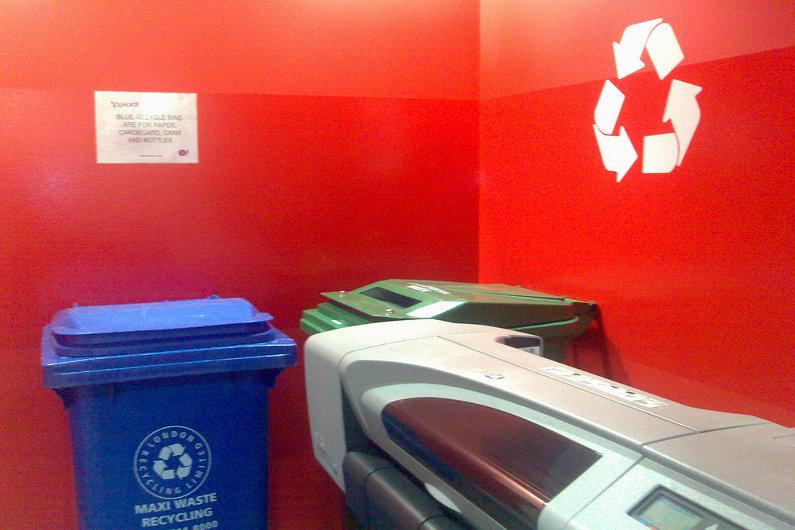Being environmentally responsible in the workplace can be challenging, but that doesn’t mean it can’t be done. Whether you’re an associate or an executive with the power to influence policy, there are many things that you can do in order to effect positive changes in your business.
There is always room for improvement when it comes to implementing environmentally sustainable practices in the workplace. Here are a few tips that you can take into consideration:

Choose environmentally sustainable office products
A little conscious effort to purchase more sustainable products can go a long way. For instance, when buying lighting for your workspace, consider LED lamps. These last longer and consume less energy compared to fluorescent lamps and incandescent bulbs.
For paper products, try looking at options available from environmentally responsible manufacturers. This can be paper made from post-consumer recycled pulp or from fiber originating from farmed trees.
When it comes to printer ink, remember that you have alternatives like remanufactured and printer cartridges. These high-quality recycled cartridges perform just as well as original products, cost much less, and help in reducing the amount of plastic waste in landfills. Popular online suppliers like Staples also often have products specifically made for popular brands such as Hewlett-Packard, Canon, and Brother.
Reduce energy use
According to the United States Department of Energy, being energy efficient is one of the simplest and most cost-effective ways to combat climate change. It also helps the global economy in general because energy efficiency reduces costs for businesses everywhere.
In office environments, all employees can pitch in to save energy. Computers and other appliances can be turned off or set into power save mode when they are not in use. Your company can also make it a policy to use appliances and fixtures that are certified energy efficient. If your business has the money to spare, you can even consider investing in solar power technologies, which can help you save energy and money in the long term.
Reuse
There are many ways to reduce and reuse in the office. For instance, instead of purchasing new pens, pencils, notebooks, and other office products, you can ask your associates to pool together the extra ones they might have so that other employees can use them. Another example is using reusable dishware and cutlery in your office pantry, as opposed to placing orders for paper coffee cups, plastic utensils, and other disposable items. You can also encourage your coworkers to reuse paper sheets that have been printed on only one side.
Recycle
Practice waste segregation in your office so you can set aside recyclables like paper, PET and glass bottles, soda cans, and so on.
It’s great if there’s a recycling company or organization in your community that can collect your recyclables on a regular basis. If not, you can still segregate your garbage to make things easier for your city’s solid waste management department.

Carpool or ride a bike
Transportation is another sector that contributes significantly to pollution. If you have a car, you can ask your coworkers to carpool with you.
Another option is to use a bicycle, which is really great if your path to work is not that polluted and road traffic is light. As a plus, you’ll get to exercise while saving money on fuel or transportation costs.
Properly insulate and air seal your office space
Finally, make sure that your office is appropriately insulated and air sealed. Poor insulation and air sealing can lead to thermal discomfort and excessive heating and cooling costs. In winter, you could end up using more energy than needed to heat up your office, while in summer, you could have the same problem trying to cool it down. Proper insulation can prevent unnecessary heat flow from occurring, while air sealing reduces the amount of air that leaks in and out of your office.
All efforts, big and small, are meaningful and important. When all members of an office contribute toward the goal of sustainability, the organization can better reduce its overall environmental impact.
